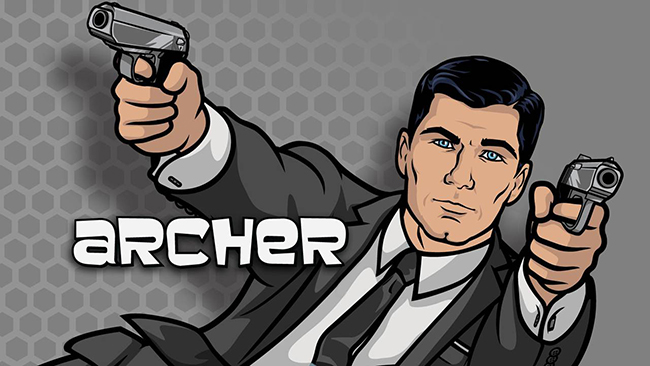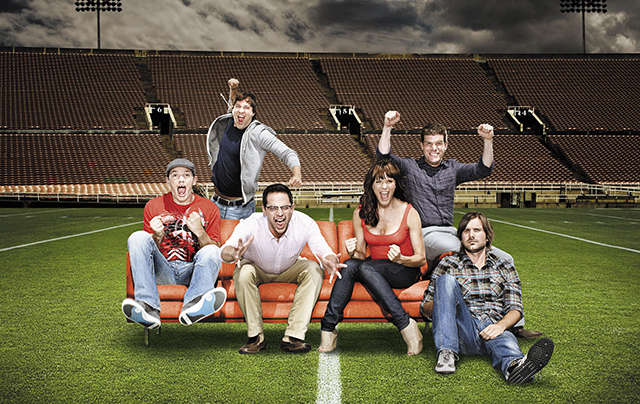Hello one and all, and welcome to my final article as the writer of Channel Chaser. Yes, you heard right: it’s the last one. But before I go, I thought that I might try to tie things up with a bit of a reflection on why I talk so much about TV, and why this form of entertainment that everyone takes for granted these days means so much to me.
I’ve been watching TV a fair bit ever since I was little, but I only got really into it – what I guess you could probably call obsessed – during my college years. As hard as it may be to believe, I actually used to read a lot more of the time than I ever spent staring at a screen. Books were kind of my life growing up, and I still love reading to this day. But as with some many other things, life just gets in the way sometimes. Mostly it was schoolwork, and then my current job as a journalist. When you spend pretty much your entire day reading and writing, the last thing you want to do when you get home at night and have free time is sit down and read a book. Reading is great, but it really does require a certain amount of attention and brainpower, something I know I don’t always have to spare. So the less and less I read, the more and more I got hooked on TV.
I’m also the kind of person who gets hooked almost immediately once they see something they like. I’ve spent whole days just burning through entire seasons of shows if I’m enough into them to do it. I even do it when I’m not really watching: when I’m at home cleaning, cooking, or doing anything else, I almost always have the TV on and one of my favorite shows constantly running via Netflix or something similar. It’s really gotten to the point where I can quote most of my favorites like Doctor Who, Archer, MASH, and so many others almost line for line. It’s a bit embarrassing sometimes, but then I suppose we all have our hobbies. There’s nothing wrong with having an interest.
One frequent criticism I hear a lot about TV when compared to reading is that reading is an overall better and more productive way to spend your time. Why is that, you might ask? Well, most people seem to think the fact that when reading it’s up to you to conjure up a certain amount of detail in your mind – what characters look like, sound like, situations described on the page–automatically makes it more valuable because you’re exercising your mind, not just letting it rot and having actors do all the creative stuff for you. There’s no freedom, they say. There’s no substance. Watching TV just can’t give you as deep of an experience as reading a book can.
But I don’t necessarily think that’s true. In fact, the ambiguity of books in this way has always been one of the things that have bothered me most about reading. You read and interpret a character one way only to find the author had a completely different intention. Not that it makes your idea any less valid, per se, but it still casts a shadow of doubt on what you read and can change your opinion of the work as a whole. In TV, subtlety in this manner isn’t ever really a problem. What you see is what you get. I’m not talking about character development: a good TV series can do that just as well as any book. What I’m talking about is that since you can see all the people, places, and things on the screen in a very tangible way, it frees your mind to stop wondering about what this character would look like, sound like, or act like, and lets you enjoy the experience overall in a much more holistic way. It’s kind of like seeing the forest around you instead of focusing on each individual tree in turn.
Another thing I love about TV is the fact that different actors pop up in wildly different roles. Few things give me greater pleasure than seeing an actor I like from one show come into another and do something totally outside what I’ve thought they could do before. On the flip side, when I know a certain actor is really good at something, I look forward to new shows because I can hope that they are in them and predict what part they could possibly be cast as. It’s why every time I hear of a new show starring Nathan Fillion, for example, I can automatically assume it’s going to funny, it’s going to be odd, and it’s going to be awesome. Anticipation isn’t anxiety for me. Actually, it might be the most enjoyable thing of all.
Long, drawn out episodic television can also cover a lot of territory books just can’t. For example, I love comedies like It’s Always Sunny in Philadelphia, The League, or Seinfeld because they spend most of their time not focused on simply moving a single storyline forward. Instead, they stop to acknowledge the fact that some of the most amusing things about life can be found in the minor, unimportant details, strange cultural norms, or pointless arguments. The sitcom style in general just doesn’t translate very well to the written word, and it’s in my opinion something no book could ever adequately copy.
And what’s the best part about television? It shows normal people there on the screen, most of the time playing very real, very believable characters, who experience things that to some extent we all go through. Visual components instantly make fictional people more relatable to the audience, and TV allows their characters to portray all of humanity at its best, and perhaps at its worst as well. It gives you something to aspire to, something to be proud of, something to think about, and it really says a lot about you as well. As strange as it sounds, you can tell a lot about someone by what their favorite TV shows are.
Well, I think it’s about time for me to go. I’d like to thank all my family, friends, and other readers who have supported me all this time, and hopefully will continue to provide me with love and inspiration in the future. It’s true what people say about real life not being a movie, or in this case, a TV show. But maybe if we took a look at some of our favorite characters and used them as examples to follow, we could take a few steps closer to it. And maybe that wouldn’t be so bad.
Channel Chaser is written by Kyle Robertson. You can check out more of his work on his website.

